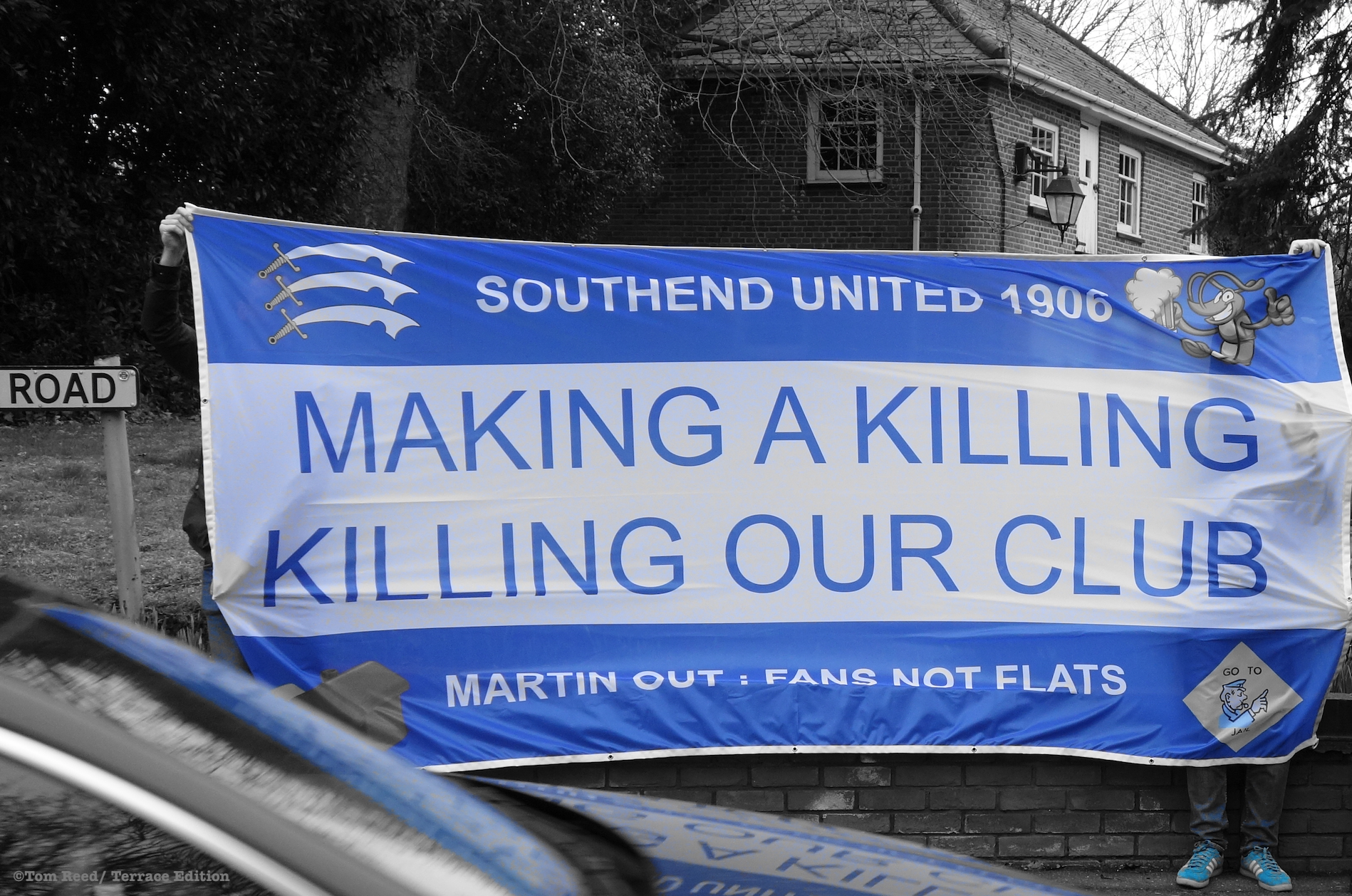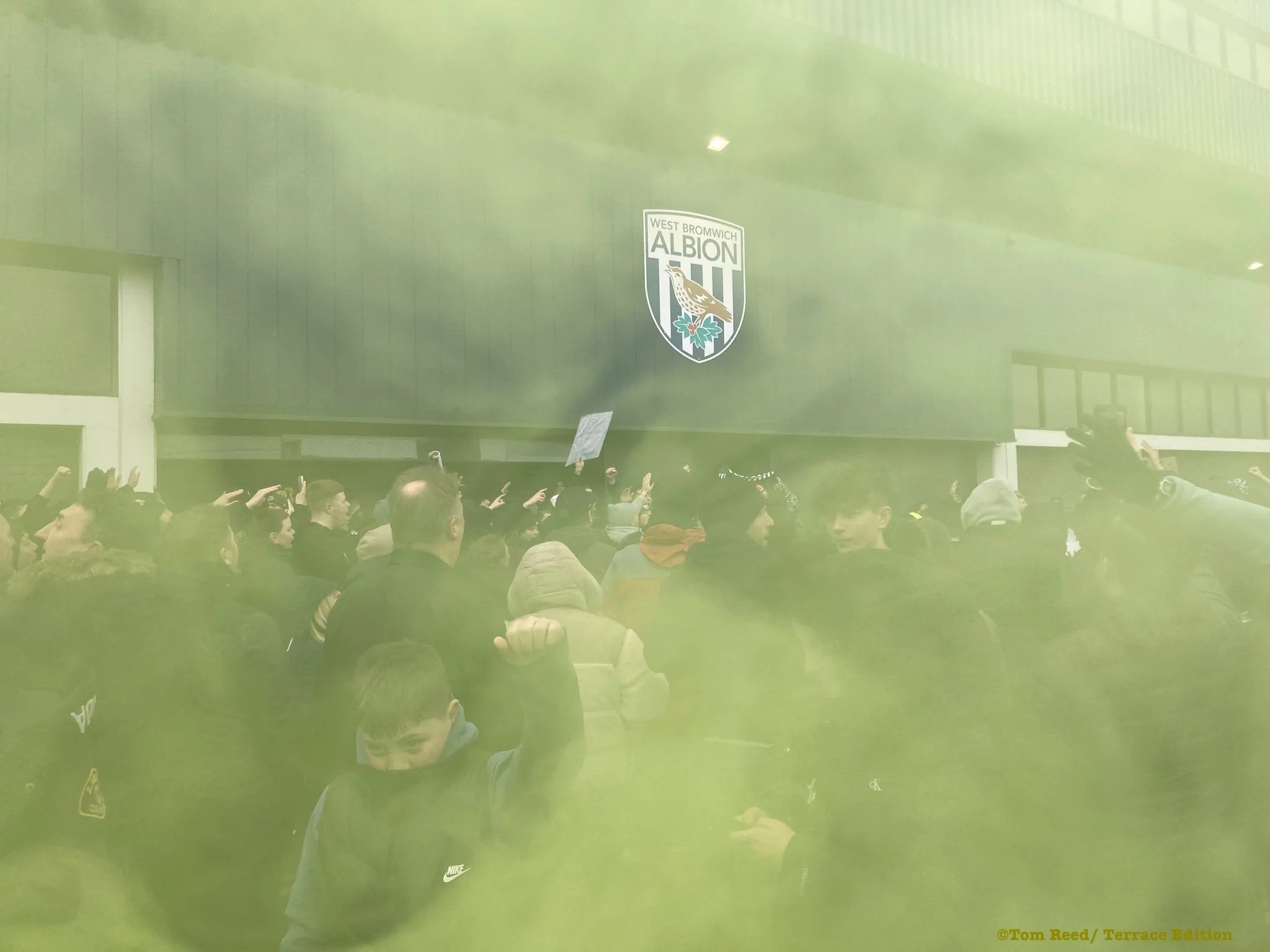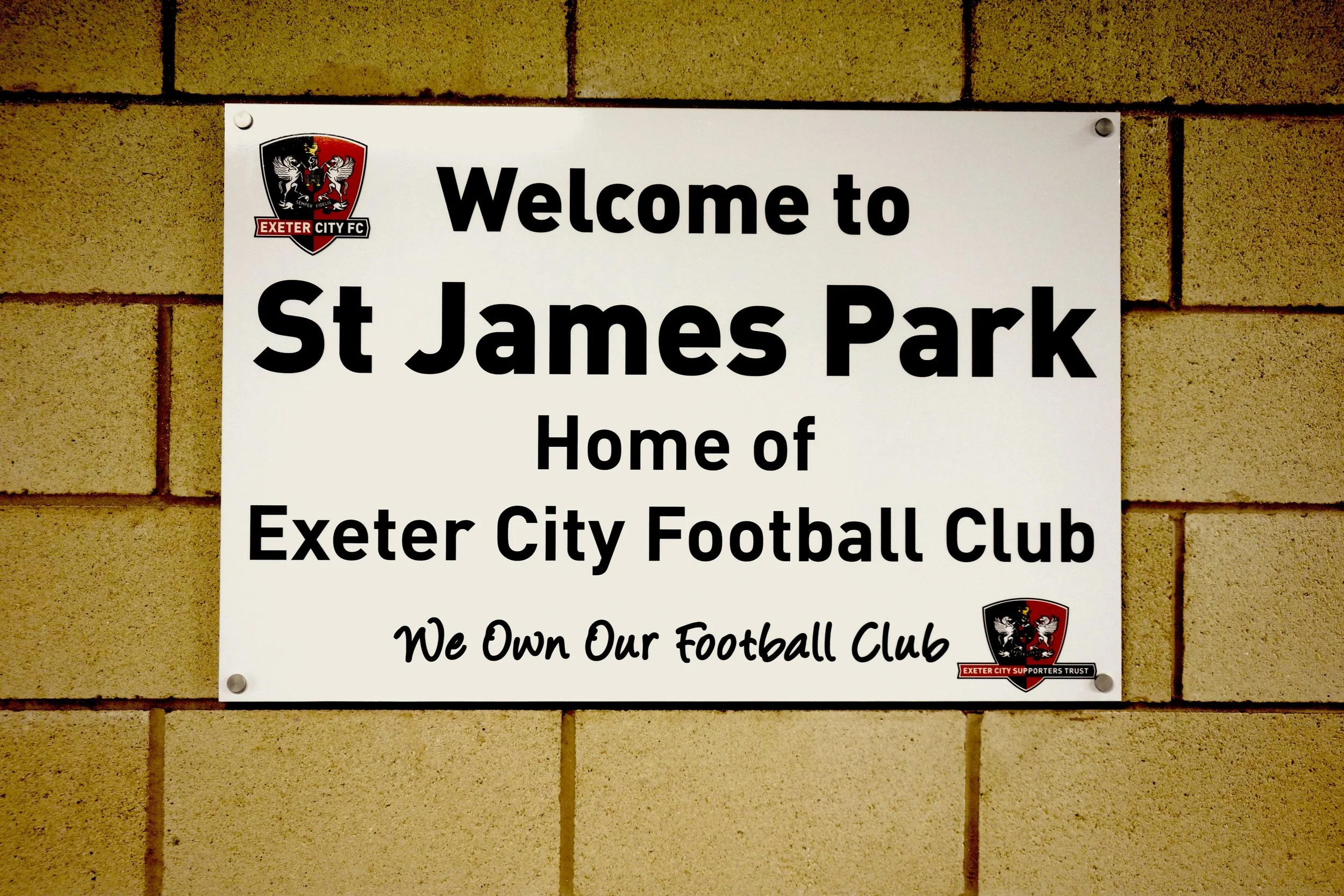31 years of hurt

Words: Tom Reed
Images: Tom Reed
Northampton Town FC almost went to the wall in 1992, run into the ground by an owner who wasn’t very good at running a football club to put it mildly.
Some fans at “the Cobblers” set up the first supporters’ trust to save football in the shoe town and to make sure no other clubs went through the same thing.
Fast forward to 2023, some 31 years later and an Independent Regulator for Football was included in Tuesday’s King’s speech, as the Conservatives belatedly forwarded a bill to prevent English football from eating itself.
That the Regulator has got off the ground is a landmark event, particularly in a party with pockets of rabid anti-interventionism.
A hell of a lot of hard work has gone into heaving the policy onto the table, of that, there is no doubt.
But the almost throwaway mention of more than 60 clubs going through administration since 1992 is the kicker, a figure that contains so much distress for loyal supporters and football communities, wrapped up in that nondescript financial jargon.
The terms “administration” or its vanilla brother “Company Voluntary Arrangement” do not do the terror invoked on football supporters justice, when the clubs they support are tangibly close to going out of existence.
The list of English clubs going through financial or governance crises in the 31 years since Northampton fans rattled buckets is long and wraps around various divisions of our football pyramid.
It continues right to the minute with supporters of Southend United, West Bromwich Albion and Reading plodding the streets in recent public marches with a message that the individuals who have got hold of their football clubs are not living up to the community remit with which they stand.
That it has taken those 31 years to get this far is a disgrace on the English game, public enquiries have been held for less, given the civic damage caused when clubs, which often welcome in many thousands of people in every week, implode before our eyes.
Back in ’92, the Chairmen of Northampton Town and Aldershot FCs, entered the pitch together to the sickly ironic refrain of “Always Look On The Bright Side Of Life’. Both were gone within a year, with the Shots bankrupt by March 1992 and the Cobblers in administration, the nascent supporters’ trust picking up the pieces.
Northampton Town Supporters’ Trust went on to steady the ship, installing two democratically elected supporter representatives on the club board. Its Chair, Brian Lomax went on to head up Supporters Direct, the single-issue organisation that forwarded fan-ownership, helping fans at AFC Wimbledon and Exeter City, get in the driving seat at their clubs along the way.
Yet, 1992 was a significant year, in more ways than one, as it was the year the Premier League burst into life, with a free-market noise that drowned out much of the really sensible work that Lomax and co were advocating.
Perhaps if the Premier League hadn’t happened, the idea of fans being on club boards would have expanded to include supporter representatives on the boards of the top-tier league, the Football League and the Football Association?
Would sportwashing become a thing and would we have a different game? But that’s an argument for another day, and from another time.
©Tom Reed/ Terrace Edition. Leyton Orient “Becchetti Out” pitch protest. 2017.
In reality, in 1997, after the landslide Labour election victory, a Football Task Force was set up to try and get to grips with a game which was being increasingly commercialised.
Sadly, the Guardian Writer David Conn was moved, 12 years later, to say the Task Force “could do better”, after not going far enough with their policy work. 2023’s Independent Regulator for Football seems to offer the final proof.
Conn was hot on a guy called Gerry Sutcliffe who, as a Labour backbencher as far back as 1999, was proposing an Independent Regulator in Parliament but by 2007 and installed as Sports Minister by Gordon Brown, had changed tack.
“While many of the issues I raised then are still relevant now, things have changed a great deal. I now firmly believe the solution lies with sport regulating itself” said Sutcliffe.
“Strange how a new job makes the minister change his mind” read the Guardian headline to Conn’s piece in response.
Sutcliffe’s about turn may be indicative of historic government failure, both Conservative and Labour, to legislate the game, which when compounded by what the recent DCMS consultation response called “defective industry self-regulation”, could have created the perfect storm for clubs being run into the ground.
Labour may argue that that when they were in charge, Supporters Direct was doing its job, setting up over 200 supporters' trusts in the UK, with more than 350,000 members and presenting a counterweight to the free-market game.
©Tom Reed/ Terrace Edition. Southend United fans picket club owner Ron Martin’s mansion. 2023.
By 2016 however, in the time of Theresa May’s first Tory ministry, Supporters Direct was suffering what the Belfast Telegraph called a “funding crisis” and noted that “some within the supporters' trust movement are worried the league wants to silence an organisation that has often been critical of football's governance by folding it into a larger organisation that has historically been less political and more focused on specific campaigns.”
Whatever the case, Supporters Direct had in fact merged with the Football Supporters Federation by November 2018 and the single-issue SD, which focused on supporter ownership and a democratic fan partnerships in clubs was no more.
That may have seemed a good idea in 2018 but a more misguided exercise with the hindsight of a post-covid landscape, with a contracted economy and paternalistic private owners even fewer and far between, if there were many in the first place.
Indeed, Accrington Chairman Andy Holt, considered one of the most progressive and outspoken private owners on the need for reform, recently publicly put the club up for sale.
Supporter ownership has never been more important and yet functional member-owned outfits like Exeter and AFC Wimbledon and Heart of Midlothian in Scotland remain outliers in an unsustainable sport which is weighted against them.
So much time has been wasted, with supporter ownership often a marginalised last resort rather than put front and centre, polished and invested in as a healthy option in the football ecosystem. Brian Lomax’s basic provisions for full board representation and shares in return for investment still go unmatched at many clubs, skilled at offering illusory fan dialogue with limited powers in reality.
While some clubs have come out of their respective financial cataclysms ok, the English league system is littered with teams that simply haven’t been able to recover fully.
League regulars Hereford United was dissolved in 2014 after being acquired with a man holding a conviction for lorry theft. The re-formed Hereford FC are doing their best but playing at National League North level.
Chester City FC are now called Chester FC after the “old” club was dissolved in 2010, following expulsion from the Conference National League. The team from the great Roman City are operating too in the National League North, the sixth tier of English football, when they were a Second Division side in 1995.
Bury are the unfortunate posterboys of football dysfunction, kicked-out of the EFL in 2019 and whom the mere mention of, is enough to get football finance Kieron Maguire having waking dreams.
But they are just one of the 60 plus teams on that frankly disgusting list of clubs that we can conclude were part of a collateral damage game.
Speak to fans of Blackpool and Leyton Orient and Wigan and Coventry and Darlington and Luton and Halifax and Maidstone and feel a game that should be mourning as much as backslapping over a regulator that is 31 years too late.
©Tom Reed/ Terrace Edition. Reading fans’ “ Sell Before We Dai” Protest. 2023.
©Tom Reed/ Terrace Edition. Blackpool “Judgement Day 3” protest. 2017.
©Tom Reed/ Terrace Edition. West Bromwich Albion “Lai Out” protest. 2023.
©Tom Reed/ Terrace Edition. Exeter City FC. Proudly fan-owned.
Tom Reed is Terrace Edition Editor and can be found on Twitter @tomreedwriting











